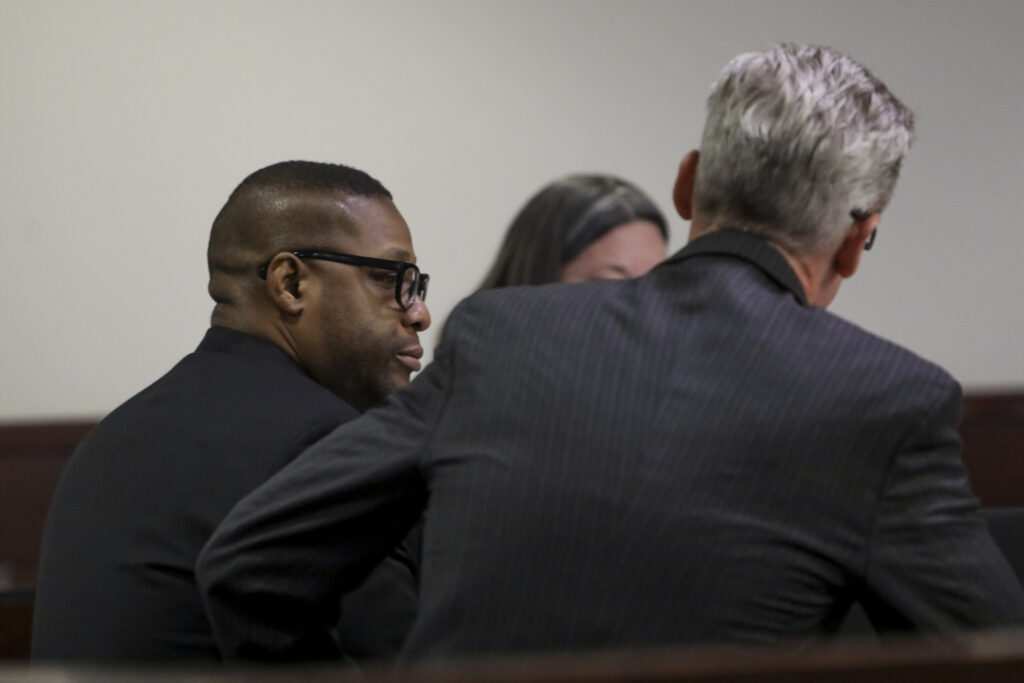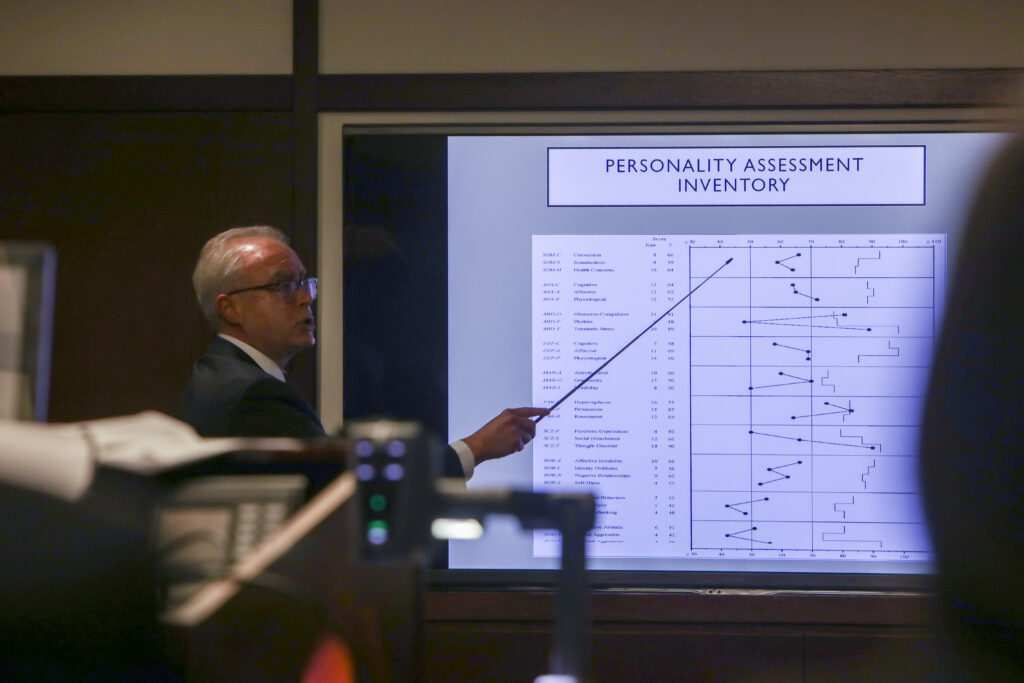With a jury poised to decide whether Tyrone Johnson should be executed for the murder of his girlfriend’s 10-year-old son, defense attorneys spent most of Monday and Tuesday illuminating the person Johnson is.
What emerged was a picture of a well-educated man who served his country in the Marines and the Army, one blessed with a large family that still loves him, but who had endured childhood abuse and grappled throughout his life with severe depression and anxiety.

Johnson, 45, was found guilty last week in the 2018 slayings of his girlfriend, Stephanie Willis, and her son, Ricky “Ryon” Willis. The pair were both shot repeatedly in their Tampa apartment after an argument over what the couple would watch on TV escalated to gunfire.
The state is seeking the death penalty only for the boy’s death. The jury will hear closing arguments from prosecutors and the defense Wednesday morning before deciding if he should be sentenced to death or life in prison.
They heard from Johnson’s mother and father, his brother, his four children, and friends.
They detailed an upbringing in which Johnson’s father was largely absent as his mother worked multiple jobs to provide for the kids. There were memories of the children witnessing physical abuse. There was also a story about Johnson’s father beating their mother, who shielded the children with her body. Relatives spoke of a grandmother who disciplined the children by stripping them naked and beating them with cords, belts and straps.

As his family spoke, Johnson at times appeared to dab at his eyes with a tissue.
While serving in the Army in 2000, Johnson was involved in an accident where a 200-pound artillery shell crushed his ankle. Doctors placed screws in his bones, but Johnson continued to need surgery and dealt with persistent pain.
Johnson was described as a loving father to his five children. He was particularly close with a son, Devin.
The son died by suicide in late 2017 at age 22. It was another in a long series of traumatic events that compounded Johnson’s lifelong struggle with depression and anxiety.
Scot Machlus, a forensic psychologist, said severe depression had followed Johnson throughout his life. It was a condition whose causes Johnson didn’t understand. It manifested in outbursts of anger.
Veterans hospital records noted Johnson had a “pervasive pattern of aggressive reaction when faced with loss,” the doctor said. He’d dealt with marital and relationship problems throughout his life. In 2012, Johnson tried to take his own life by walking into traffic.
The doctor diagnosed Johnson with depression, anxiety, obsessive compulsive disorder and a paranoid personality.
The testimony was intended to demonstrate that Johnson was in the grips of an extreme emotional disturbance when he committed the crime, a factor that could weigh against a death sentence.
In the spring of 2017, Johnson took a job as a paralegal in the office of the attorney general in Tampa. He worked in the division of the office of statewide prosecution that handles child welfare, abuse and neglect cases. His supervisor, Stephanie Bergen, testified that he at first struck her as well-spoken and polished, but that he soon started having problems. He frequently showed up late for work. When he was there, he would get irritated by noise and socializing among his coworkers. Bergen moved him to a quieter office, but problems continued, she said. He was later forced to resign.
“I don’t personally know what was going on in his life,” she said. “I tried to support him as much as I could.”
In June 2017, Johnson was held involuntarily for mental health treatment under Florida’s Baker Act. In the period before he went to live with Willis and her son, he was said to have been couch surfing, having no permanent home.
But prosecutors sought to rebut the defense, they presented testimony of another expert.
Wade Myers, a psychiatrist, said Johnson’s troubles were more indicative of antisocial personality disorder.
Myers noted a story told in medical records that Johnson at age 12 had killed a dog by hanging the animal from a tree and that doing so gave him a “thrill.” Other records referenced a story of a teenage fight in which Johnson beat another teen so badly that the boy lost consciousness. He mentioned Johnson exhibiting problems with anger while in the military, and an incident in which he attacked his former wife.
Aubrey Land, a former prison officer and inspector general for the Florida Department of Corrections, testified Monday that Johnson would do well in the general prison population, where he would be if given a life sentence. He noted that Johnson, who has a master’s degree, could obtain prison jobs as a law clerk or a teacher’s aid.
But if Johnson were sent to death row, he would not be allowed to work and would stay in a cell almost all the time until the day of his execution.
“Honestly, I believe it would be a waste,” Land said as a prosecutor objected.
___
© 2021 Tampa Bay Times
Distributed by Tribune Content Agency, LLC.



